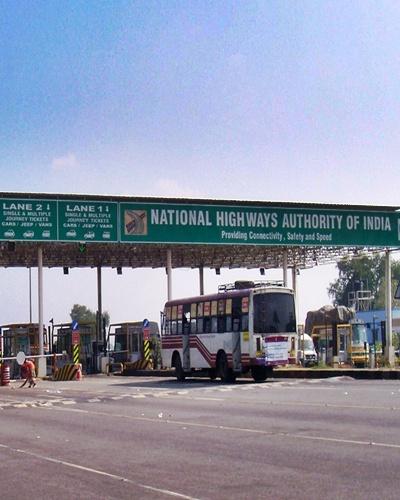
Violence and vandalism at toll plazas point to poor planning. An independent highway regulator would have helped the cause, says Vinayak Chatterjee.
The move towards market pricing of utilities has the collection of user pay charges as its core philosophy.
This is coming under threat; whether it is the current brouhaha over the Aam Aadmi Party-induced electricity and water subsidies or toll plaza violence in Maharashtra and other parts of the country.
Whipping up a public frenzy against payments for public utilities – whether it is hikes in bus or train fares, or water and electricity charges – has been staple fodder for political parties for decades.
Toll plazas now get added to the list. Easy access and often their remote locations, make them a soft target for violence and threats. In deeper parts of the countryside, ransacking incidents have been engineered, including life-threatening calls to operators and their employees, if a certain “hafta” is not paid every month to a set of local mafia, whose broad claim is that the road stretch passes through their “control area”.
Moreover, logjams and “long-tailing” at toll plazas leading to irritating time wastage (often as long as 15-20 minutes during peak hours) do very little to foster positive attitude.
...
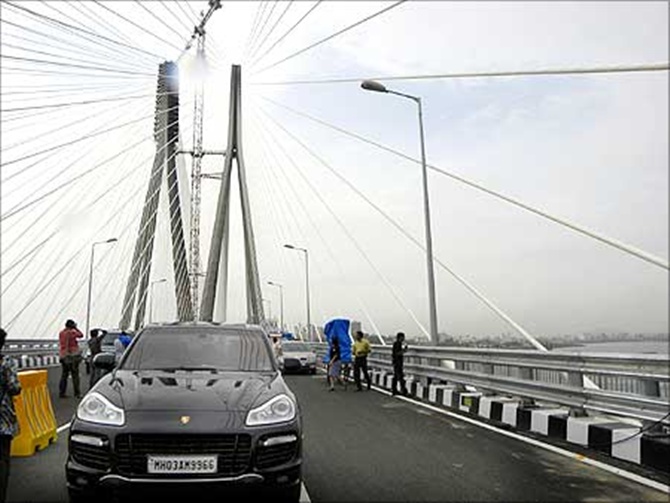
Aggressive lane-jockeying by fellow drivers, and often the shabby nature of the transaction experience at the booth adds to the general abhorrence. Attacking tollbooths is thus clearly a cathartic experience.
This high irritation coefficient, coupled with perceptions regarding “corruption” at toll plazas, makes them fertile ground for vandalism.
While the broad swathe of Indian public-private partnership–build-operate-transfer roads are honestly managed (often under trying conditions) by well-regarded and well-meaning corporations, the “corruption perception” gets fuelled on account of a clutch of outlier promoters.
Stories (often wildly exaggerated) circulate among the toll-paying public about this group’s gold-plating tendencies during construction followed through by diamond-studding tendencies in the operative phase where substantive unaccounted cash is believed to be spirited away every day from the toll plaza.
Sample field data available with the author show that mere professionalisation of tollbooth operations with tight implementation of processes and controls resulted in a jump in toll collections from 15 to 30 per cent.
...
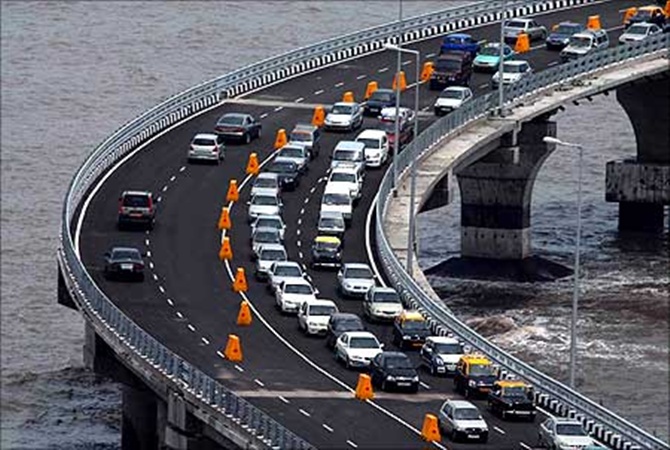
There is also huge resentment about “inordinate returns” accruing to road developers for what is perceived to be an indefinite period of toll collection without any correlation with road construction or maintenance costs. This gets aggravated with the knowledge that the public is anyway paying a “road development cess” of Rs 2 for every litre of petrol or diesel purchased.
Unfortunately, the driving experience on many of India’s toll roads leaves a toll payer bewildered about why he is paying a toll at all. There appears to be no correlation between the toll paid and the services delivered.
It is noteworthy, in this context, that India accounts for about 10 per cent of road-crash fatalities worldwide. With 130,000 deaths annually, the country has overtaken China with the worst road traffic accident rate worldwide at 18.9 per cent — 100,000 fatalities in 2013; up from 16.8 per cent in 2009.
This kind of gross underservicing of customers could itself become a fit case for public-interest litigations, or class-action suits.
...
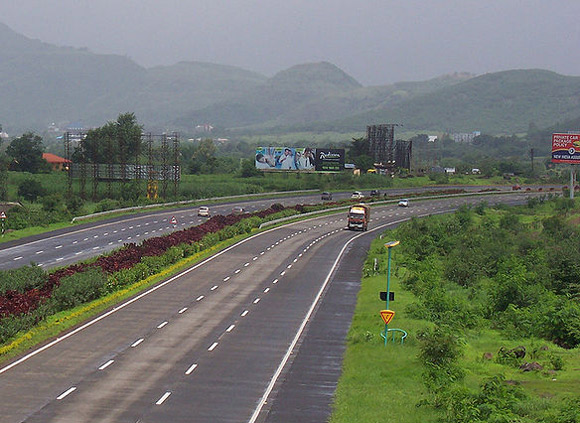
In the criss-crossing network of national and state highways, the positioning logic of some toll plazas is clearly unscientific. The National Highways Authority of India (NHAI) mandates a minimum 60 km between two plazas — but this has been given the go-by in many suburban and peri-urban areas.
No common guidelines exist for similar spacing in state highways. And finally, the fact that tolling needs to be studiously avoided within urban areas needs enforcement. All this comes on top of misjudging traffic growth while approving highway capacity designs, thereby forcing willy-nilly the result of fatal under-designing to appear as a disastrous pressure point at toll plazas.
Worse still is the concept of allowing tolling of “work-in-process” highways. Tolling while construction is in progress from four-laning to six-laning, is a recipe for disaster.
The stretches under construction are often a mess and collecting toll under such circumstances is a travesty of customer service as certain stretches of the Jaipur-Delhi NH-8 will clearly testify.
...

Inordinate delays in completing a given stretch lead to huge frustration as well. For example, the Panipat-Jalandhar stretch of NH-1 is now under implementation for over five years.
Strangely, there is no congruence between the tolling policy of central roads and state roads, or even roads tolled under mandates from urban local bodies. So, the paying public is left thoroughly confused. It is about time that a “national” tolling policy was crafted, even though roads are constitutionally both a central and state subject.
Amid all this, the aspiration to be a VIP, even a local one — is very high. So, minor local functionaries and influentially well-connected rural and semi-urban gentry, all want to avoid paying toll, as it is beneath their own perceived status. Violent altercations often happen on the insistence that toll be paid.
In some parts of the country, owners of fleets of buses and trucks and in some cases, truckers’ unions operating in the hinterland of toll-ways seek special exemptions since many of them are locally strong influencers. They engineer incidents of violence and arson to negotiate lower-block deals for their fleets.
...

Adding to the existing stress is the aspect that “locals” should not pay tolls, and that only long-distance traffic should. Determining “locals” has been quite contentious.
The “monthly-pass” policy, intended to address the problem of multiple crossings of a toll plaza in a day by local traffic is often abused by all kinds of vested interests demanding this facility undeservedly.
India today has over 525 toll plazas operating on national and state highways. Another 150 to 200 of them will get added in the next few years. These toll plazas are the outcome of a particular path chosen to finance the country’s road construction and we cannot wish them away.
During the 11th Plan, total private sector investment on the National Highways Development Project was Rs 62,629 crore (Rs 626.29 billion) against Rs 11,032 crore (Rs 110.32 billion) in the 10th Plan. Proceeds from toll collection on publicly-owned stretches, negative grant and revenue share inflows are ploughed back into road development.
Clearly, toll plaza violence has to be stopped in its tracks and a set of mitigating measures suggest themselves for urgent consideration.
My colleagues — Vivek Rastogi (highways operation, maintenance and tolling specialist) and Rajeev Bhatnagar (highway design and engineering specialist) have for long been advocating a set of measures to tackle the toll-vandalism-rage menace.
...
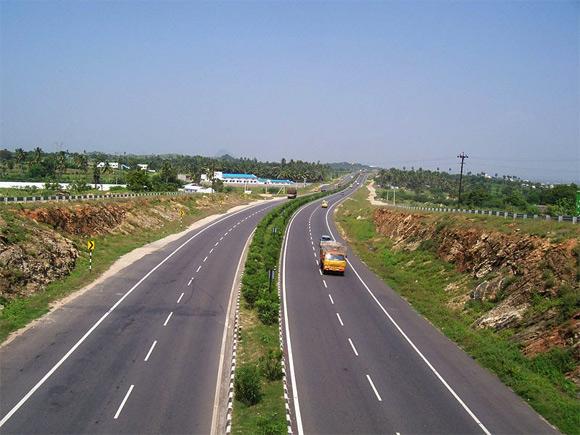
Here is their set of 11 suggestions:
The writer is the Chairman of Feedback Infra.